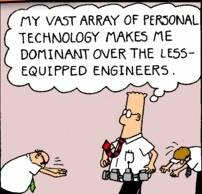January 8, 2016
Modern office design principles favour extroverts, study claims 0
 This week’s British Psychological Society Occupational Psychology Division annual conference in Nottingham has proved to be a fruitful hunting ground for insights into the nature of modern work and workplaces. The week culminates today with the presentation of a new study from business psychologists OPP which claims that personality has a big impact on the type of office environment people prefer to work in. Modern features such as shared space and open-plan floors appeal mainly to extroverted workers and made introverts uncomfortable. Over 300 people (71 per cent female and average age 47 years) completed an online survey about their current workplace. The participants had previously completed a personality test to ascertain their personality type. The results showed that many features of the modern office were more likely to be preferred by extroverts than by introverts.
This week’s British Psychological Society Occupational Psychology Division annual conference in Nottingham has proved to be a fruitful hunting ground for insights into the nature of modern work and workplaces. The week culminates today with the presentation of a new study from business psychologists OPP which claims that personality has a big impact on the type of office environment people prefer to work in. Modern features such as shared space and open-plan floors appeal mainly to extroverted workers and made introverts uncomfortable. Over 300 people (71 per cent female and average age 47 years) completed an online survey about their current workplace. The participants had previously completed a personality test to ascertain their personality type. The results showed that many features of the modern office were more likely to be preferred by extroverts than by introverts.




































January 6, 2016
Two new studies that highlight the complexities of gender at work 0
by Mark Eltringham • Comment, Knowledge, News, Workplace
(more…)